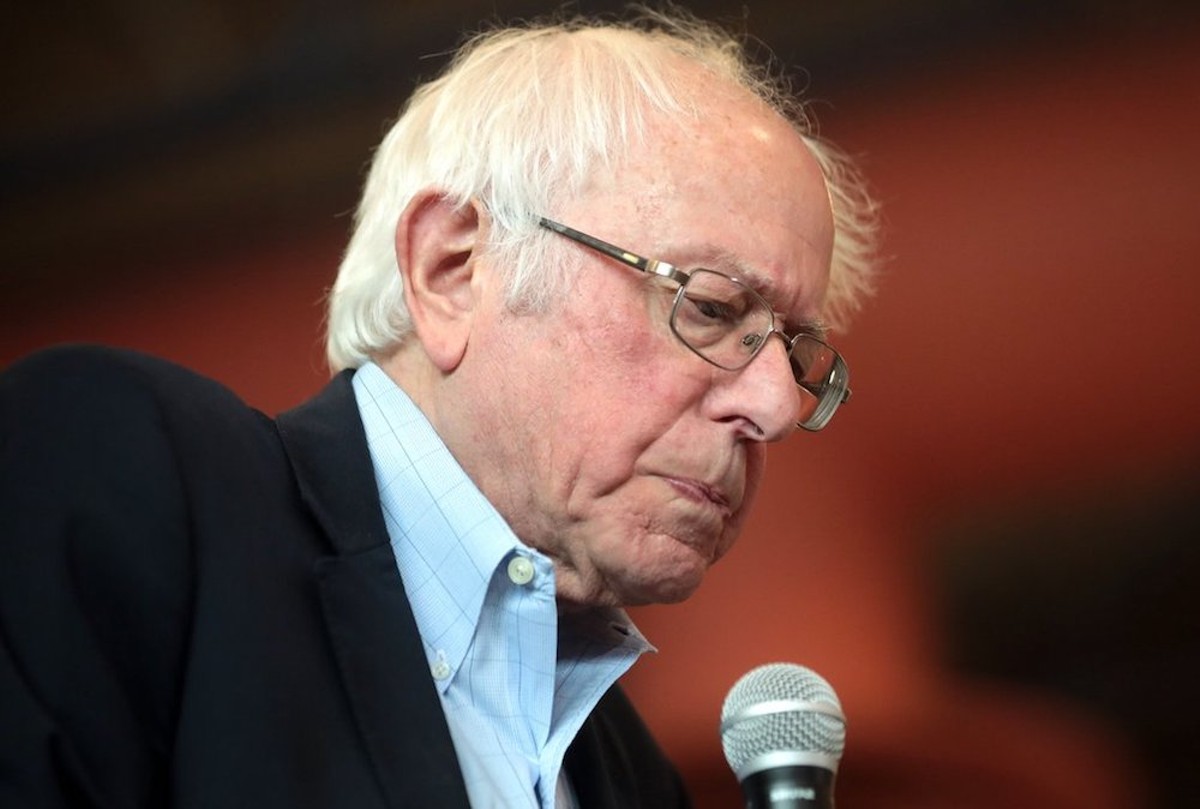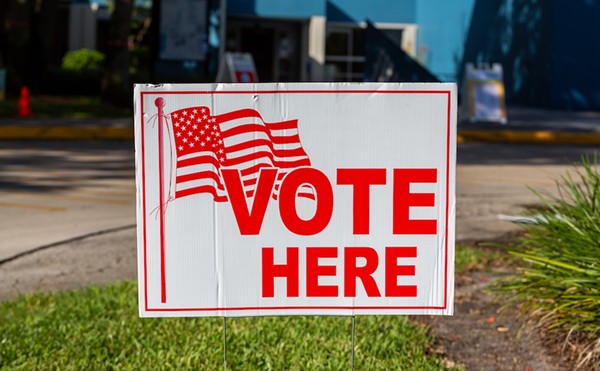In Nevada last week, the dog caught the car.
For the last two decades, Bernie Sanders has been a crusader for the American left. As a congressman and senator, he was a cantankerous, uncompromising gadfly raising righteous hell about social justice and economic inequality and forcing his Democratic colleagues to take uncomfortable votes that didn’t always play well in their districts.
Then he ran for president. What started as a long-shot protest of the party’s anointment of Hillary Clinton grew into a movement fueled by young people who’d grown up in the shadow of the Iraq War and the Great Recession and resentment of the neoliberalism Clinton represented. Sanders split Iowa and won New Hampshire. But Clinton won a disputed Nevada caucus, then walloped Sanders in South Carolina on the strength of her longstanding ties to the African American community.
The race was effectively over soon after. Sanders pressed on, though the delegate math became impossible. His die-hards accused the Democratic National Committee of rigging the election – which was true, though not in the ways they alleged. The DNC had partnered with the Clinton campaign in unseemly ways, but the goal wasn’t to freeze out Bernie Sanders; it was to freeze out everyone else – Joe Biden, Cory Booker, Elizabeth Warren, etc.
In 2020, Sanders faced a field of two dozen – the Most Diverse Field in History™, as Democrats often boasted. He ran the same playbook: pitting himself against the corporations and the billionaires and the establishment, promising that he could engage young and disaffected voters with his populist message. Once again, he split Iowa (this time, with Pete Buttigieg) and won New Hampshire. Then, in Nevada, Sanders dominated. He won 47 percent of the vote, running up the score among Latino voters. The listless Biden got just 20 percent.
Sanders was the frontrunner. The dog had caught the car.
With Biden on the ropes, this was Sanders’ moment to unite the party behind him – to forge alliances with adversaries, to modulate his message for mass consumption, to broaden his movement beyond its 33 percent ceiling, and to assuage skeptics worried about his chances in November. But Sanders, an insurgent who had always battled the “corrupt establishment,” couldn’t turn his insurgency into a workable coalition. Leading a diverse, ideologically fractious party is more difficult than leading a movement. It requires compromise and accommodation. That’s never been who Bernie is. He plants his flag and expects – demands, really – that others come to him.
Last week, he paid for it.
In the 2016 South Carolina primary, Sanders got 14 percent of the Black vote. This was an obvious weak spot, both there and across the South, something he’d have to address if he had any hope of winning the nomination. Sanders had four years to cultivate relationships in Southern Black communities. The result? In 2020, Sanders won 17 percent of the Black vote in South Carolina.
He’s done better among Latinos, but the central premise of his campaign – that he can attract young and new voters – has fallen flat. Take North Carolina: In 2020, Sanders won 57 percent of the under-30 vote. But that’s less than the 72 percent he won in 2016, and under-30s comprised a smaller percentage of the electorate, too. It’s been the same story across the country.
There’s a long way to go before the Milwaukee convention. But if the current polling holds and Sanders gets thumped in Florida next week, the delegate math could soon become prohibitive.If Sanders loses the nomination – to a weak former vice president with decades of baggage – it won’t be because the game is rigged. It’ll be because he never learned how to play.
tweet this
For what it’s worth, that’s not my preferred outcome. Truth be told, I think it’s a sad commentary that the Most Diverse Field in American History™ has boiled down to two white guys in their late 70s because Democrats convinced themselves that Americans won’t vote for a smart, qualified, über-prepared woman. But here’s the important thing: If the recriminations from the primary fight don’t lead a chunk of Democrats to stay home or vote third party, either Sanders or Biden can defeat President Trump, which is, to my mind, priority No. 1.
The day after Super Tuesday, Sen. Warren dropped out but didn’t endorse anyone, though she’s most simpatico with Sanders. To many of Sanders’s supporters, this was proof that the Democratic Party had again rigged the system. Sanders alluded to this on Sunday, saying that the “power of the establishment” had forced out Sen. Amy Klobuchar and Buttigieg, who both endorsed Biden.
It’s a little condescending to equate Black voters in South Carolina with “the establishment,” though there are, of course, many party elites who prefer Biden, whether out of ideology or self-interest. But this isn’t a conspiracy. It’s politics.
Even if Warren ends up backing Sanders, it’s telling that she didn’t do so right away. Among his natural allies, Sanders hasn’t developed a reservoir of goodwill. Instead of spending the last four years building networks and nurturing the relationships that are the mother’s milk of politics, Sanders has tried to storm the castle and overthrow the party from the outside.
But he doesn’t have the numbers to do it. (To quote Emerson, “When you strike at a king, you must kill him.”) In state after state, Sanders has racked up huge margins from those under 30 or 40. If young people turn out en masse, Sanders could win. But if they don’t, and soon, his strategy will fail. A failed strategy isn’t a conspiracy. It’s a failed strategy.
If Sanders loses the nomination – to a weak former vice president with decades of baggage – it won’t be because the game is rigged. It’ll be because he never learned how to play.
Chasing the car is more fun than figuring out what to do when you’ve caught it.
– This story appears in the March 11, 2020, print issue of Orlando Weekly. Stay on top of Central Florida news and views with our weekly newsletters.


















